Education in our earliest years has a powerful impact on the rest of our lives, research shows. Here Sarah Harrop explores the principles and practice for good quality education of young children and the benefits it can bring.
Aristotle famously said: “Give me a child until he is seven and I will show you the man.”
Science has proven there’s considerable truth to this. During our early childhood, from our time in the womb through to the age of five, our brains develop faster than at any other time in our lives. In fact, by the time a child has reached the age of six, their brain has already reached around 90% of its adult volume. Connections between brain cells that are used frequently are strengthened, while unused connections gradually disappear. Together with our genes, repeated social interactions with those around us actually change our long-term brain structure. Therefore our early years, and the learning experiences, relationships and surroundings we encounter during those years, are fundamental to shaping our cognitive development and the rest of our lives.
“This is when we start to understand the world in which we live. How to manage our emotions, build relationships with the people around us, believe in ourselves, develop resilience against adversity and have trust in others” says the Tommy’s childcare charity.
Providing strong support for children, parents and carers during these formative years is essential to give them a head start and it can have a life-changing impact. If children and those who care for them have a supportive and nurturing environment built around them, it can benefit the physical and mental health of future generations and make for a happier, healthier society.
In recognition of the importance of early childhood development, the UK government funds up to 30 hours of early years education for all children aged three. This is part of the government’s Early Years Foundation Stage – a set of early learning standards school and caregivers must meet for the education, development and care of children from birth to the age of five.
Early education standards
To make sure all children learn and develop well, the UK government’s EYFS framework sets the national standards that must be met by all early learning providers, including school staff, nurseries, pre-schools and childminders. The framework also ensures children are kept healthy and safe and have all of the knowledge and skills they need to move on to the primary school learning environment.
EYFS applies to England, while Scotland has the early years Curriculum for Excellence, Wales has Foundation Phase and Northern Ireland has Curricular Guidance for Pre-School Education.
There are seven competencies of children’s learning and development that EYFS requires to shape educational programmes in early childhood education and care settings. The so-called ‘prime areas’ are:
Communication and language
This could involve young learners practising listening to others, listening to stories, using descriptive language to express themselves or tell a story, or expanding their language development and communication skills through role play or listening to stories.
Physical development
This standard focuses on both gross motor skills such as balance, coordination, and confidence in movements as well as fine motor skills – holding a pencil, paintbrush or knife and fork. These skills can be developed through games that involve running and jumping, drawing and painting and eating meals using a knife and fork independently.
Personal, social and emotional development
This standard seeks to encourage children to recognise their own and others’ feelings and how best to respond, learn to follow instructions and control their impulses and behaviour. Children learn how to manage themselves, including personal hygiene and healthy habits and build independence and resilience. It also requires early learning providers to teach children to cooperate with others, through taking turns or sharing, to be sensitive to their needs and form positive friendships and bonds with others.
Specific learning areas
Furthermore, child care providers must also support early child development in four specific areas, applying the three prime areas throughout learning processes:
- Literacy
- Mathematics
- Understanding the world
- Expressive arts and design
What does the research show about best practices for early education?
A 2017 study commissioned by the Department of Education explored how good quality early years settings establish and sustain good practice with the potential to improve children’s learning outcomes.
Particularly focusing on two-to-four-year-olds, the study looked at good practice in planning the curriculum, assessing and monitoring progress, staffing, managing transitions (e.g. between different nursery rooms, or from nursery to school) as well as communicating with children’s parents and home learning. Across a range of high quality settings, the study carried out 16 case studies involving over 100 face-to-face interviews with setting managers, staff, parents and Local Authority staff. Three overall themes emerged from the findings:
- Tailoring practice to the needs of the children. By developing systems and processes with the wellbeing and development of the children in mind, settings were better able to maintain focus and avoid distractions. In practice, this meant settings had a clear vision of what they wanted to achieve for the children in their care, and these clear goals informed all areas of their practice.
- Skilled and experienced staff. A skilled workforce of qualified, knowledgeable and experienced staff were found to be essential for underpinning practices that supported children to reach their full potential. Settings with good practice worked hard to recruit and retain high quality staff, and prioritised ongoing support for their development.
- An open and reflective culture. This can drive continuous improvement, creating a positive working environment and encouraging sharing of good practice to increase the quality of the early years sector as a whole. Settings with good practice formed partnerships with other settings and professionals; recognised the knowledge and expertise of their own staff; valued open discussion and staff consultation; and embedded a culture of self-evaluation initiatives to keep improving.
Socio-cultural perspectives on early years education
Principles and practice aside, child development and learning doesn’t take place within a vacuum. Babies and children learn about the world within a wider socio-cultural, political and historical context, and within that context individual children’s experiences may vary according to their social background.
“Social identities bring with them socially constructed meanings that reflect biases targeted to marginalized groups, resulting in differential experiences of privilege and injustice. These systems can change over time, although many have remained stubbornly rooted in our national ethos,” says the National Association for the Education of Young Children (NAEYC), a large, US-based nonprofit association representing providers of prekindergarten education and their stakeholders, families of young children, policy-makers and advocates.
In a position statement, the NAEYC sets out the argument that the dominant narrative in the US has reflected the ways in which society has granted or denied privilege to people based on certain aspects of their identity – such as whether they are male or female, White or Black, disabled or able bodied, educated or economically disadvantaged.
“Deeply embedded biases maintain systems of privilege and result in structural inequities that grant greater access, opportunity, and power to some at the expense of others,” says the statement.
One example given by the NAEYC is that few men enter the field of early childhood education, reflecting the historic marginalisation of women’s social and economic roles and particularly for Black women. As a result, children are usually taught by White, middle-class women, with women of colour assisting rather than leading.
There is a growing body of evidence, especially with younger children, suggesting that a racial and gender match between teachers and children can be particularly beneficial for children of colour without any negative effects on children. For example, this 2023 study showed that young children who are taught by a teacher of the same ethnicity as themselves developed better learning and problem-solving skills by the age of seven.
Recognising and addressing the inequity that exists could benefit society, early years educators believe, by tapping the potential of children whose communities have traditionally not experienced a level playing field.
Early years education that shapes tomorrow’s adults
Good early childhood educators can have a profound impact on young children and their future life trajectories. Successful education lays the groundwork for a child’s ongoing education at a formative time when they are learning emotional and social skills that help them to interact and bond with parents, teachers and other children. The MA Education Early Childhood, North Wales Management School is for busy working professionals in early childhood education roles who want to reinforce their practical work experience with the education and early childhood theory, tools and techniques and hone their professional development.
This 100% online MA will help you to achieve career success as a practitioner in early childhood education. You’ll learn to combine a deep understanding of broader educational theory and practice with theoretical and practical experience of education in the early childhood context.
The MA covers fundamental elements of education and early childhood theory and practice, from well-being and resilience in early childhood to critical pedagogy and anti-oppressive practice. You’ll also benefit from North Wales Management School’s strong relationships with major employers and education providers to develop a programme with a practical focus, which targets specific career outcomes within the early education context. Find out more, including how to apply.




